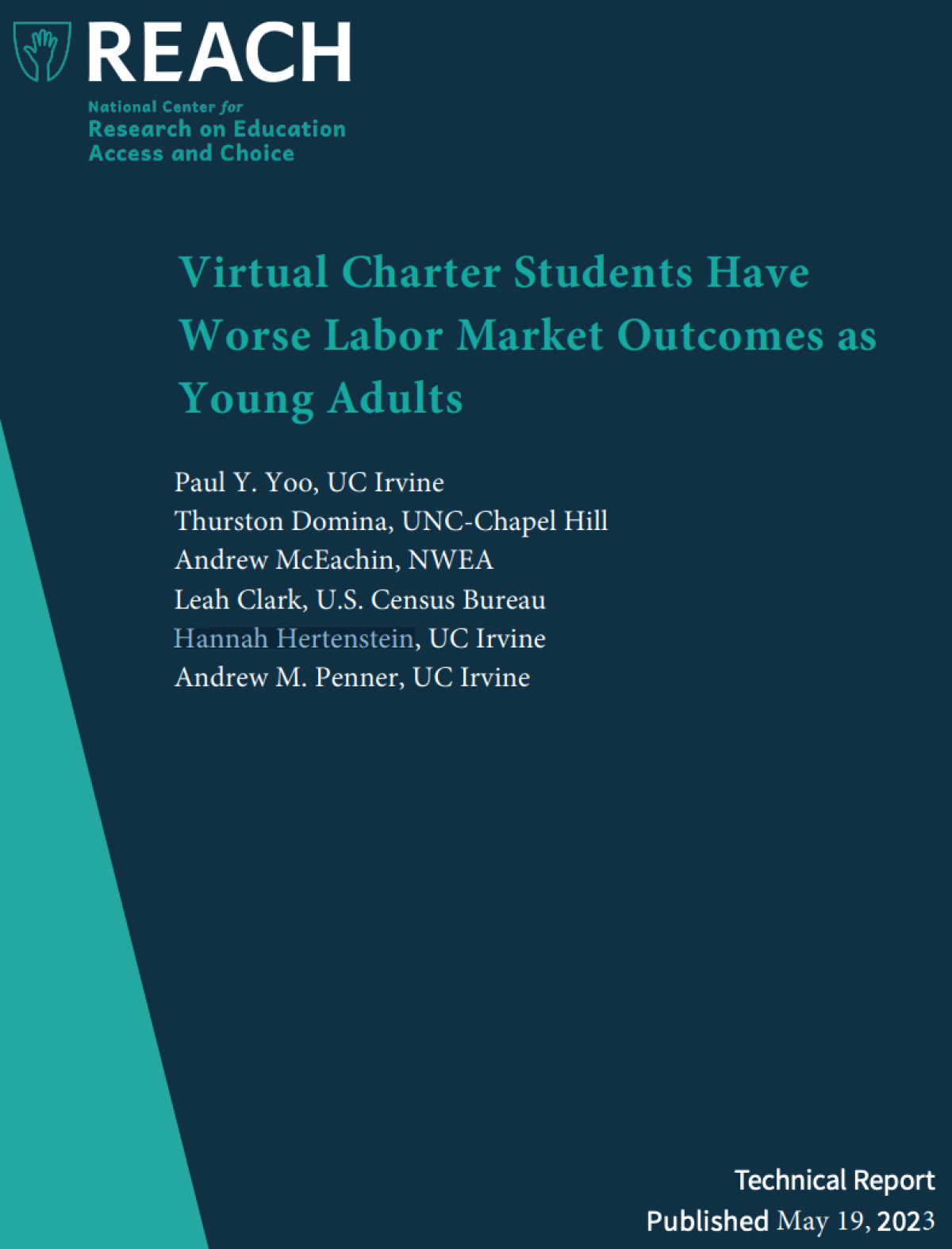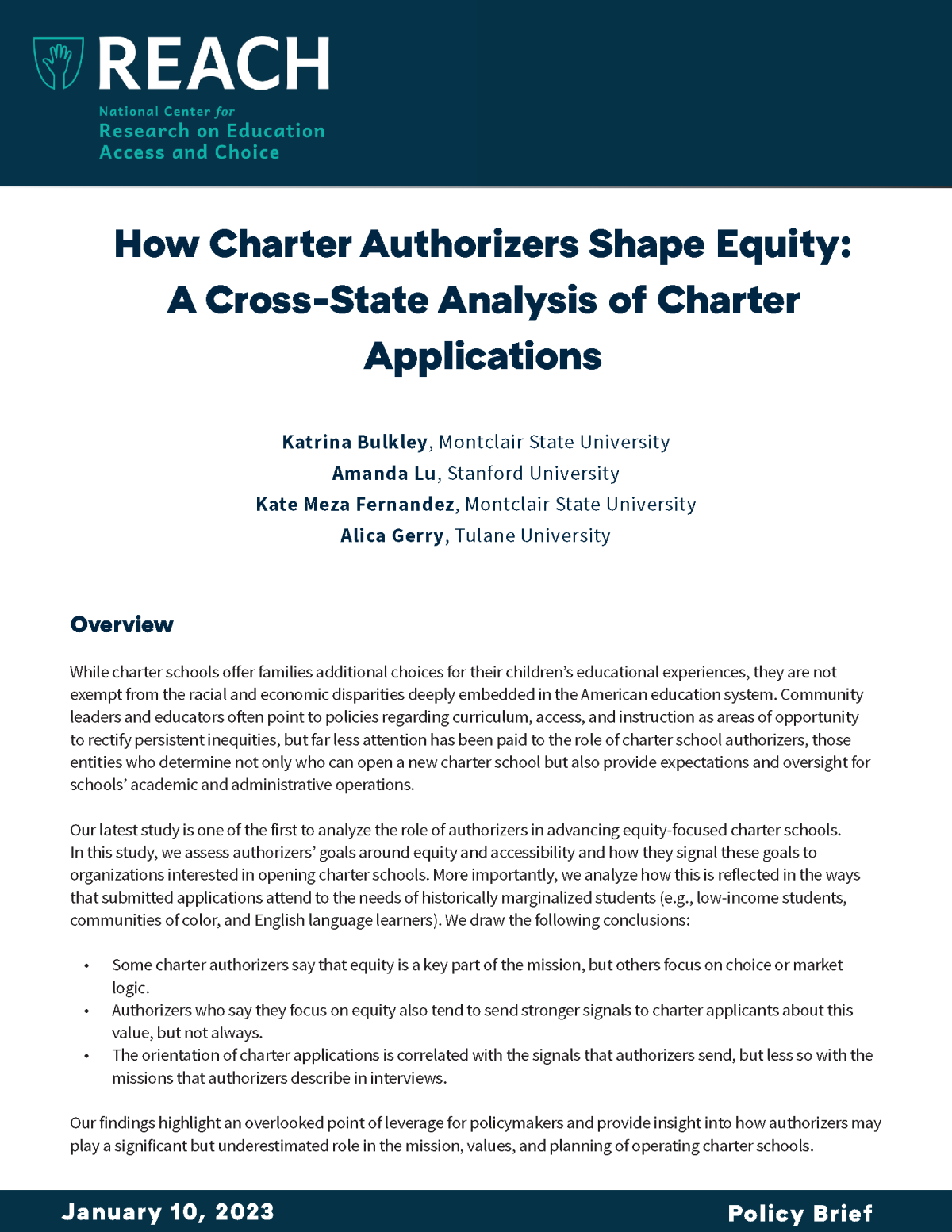In providing first-of-their-kind estimates of how virtual school students fare as young adults, we add to the growing literature on the effectiveness of virtual charter schools. Consistent with the previous literature that found negative associations between virtual charter attendance and short-term academic achievement, we find that virtual charter students have substantially worse high school graduation rates (cf. Ahn and McEachin 2017; Bueno 2020), college enrollment rates, bachelor's degree attainment, formal employment rates, and earnings among those who are employed. Although there is growing interest in and demand for virtual charter schools, especially since the beginning of the pandemic, our results underscore the potential long-term negative consequences of naively meeting this demand.
Virtual Charter Students Have Worse Labor Market Outcomes as Young Adults
May 24, 2023 | By Paul Y. Yoo, Thurston Domina, Andrew McEachin, Leah Clark, Hannah Hertenstein, Andrew Penner
Virtual charter schools are increasingly popular, yet there is no research on the long-term outcomes of virtual charter students. We link statewide education records from Oregon with earnings information from IRS records housed at the U.S. Census Bureau to provide evidence on how virtual charter students fare as young adults.

